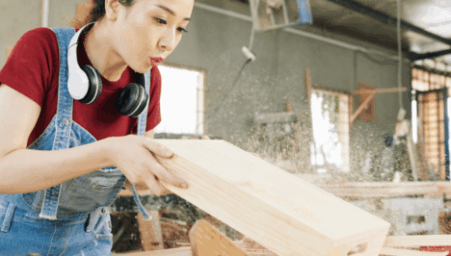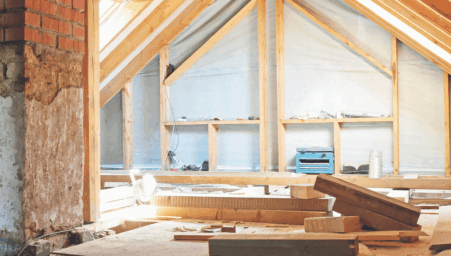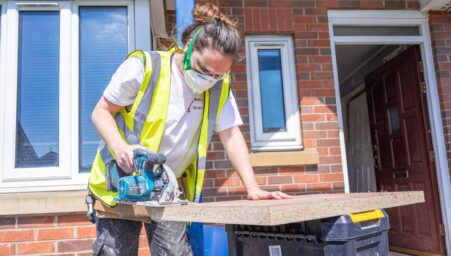Joinery
Overview
Joinery involves crafting and installing wooden structures, fittings, and furniture. Whether you’re fitting doors, building custom furniture, or working on a construction site, carpenters play an integral role in residential, commercial, and even film or theatre projects. With high demand for skilled professionals, carpentry offers a stable and rewarding career, accessible to everyone, regardless of age or background.
More about Joinery
What Do Joiners Do?
As a Joiner, your job will focus on working with wood. Your duties will vary depending on the project, but could include:
- Measuring, marking, cutting, and shaping timber
- Installing wooden fixtures such as doors, skirting boards, and staircases
- Building and fitting roof trusses, floorboards, and partition walls
- Assembling custom furniture, kitchens, cupboards, and shelving
- Working from technical drawings to create wooden components
- Restoring or renovating historical buildings
- Constructing stage sets for film, TV, and theatre productions
- Working on construction sites, in workshops, or at clients’ homes
What Skills Will You Use?
To be successful as a Joiner you’ll need a mix of practical and personal skills. Strong knowledge of building and construction techniques is key, as well as being able to use both hand and power tools safely. Attention to detail is crucial for measuring and fitting timber accurately, while good communication skills will help you liaise with clients and team members. Physical stamina is important, as you’ll often work in dusty environments, at height, or in challenging conditions. If you choose to work for yourself, business and time management skills will be vital to manage your projects effectively.
Where Can This Job Take You?
Joinery offers plenty of room for career growth and specialisation.
With experience, you could progress into supervisory or managerial roles, such as site supervisor or construction project manager.
You could also specialise in areas like heritage restoration, stage set construction, or furniture making, or even start your own business.
Additionally, opportunities in teaching, contracts management, and construction estimating are available.
How to Become a Joiner
Whether you’re just finishing school or are considering a career change, there are several routes to get started:
- College Courses: A Level 2 or 3 Diploma in Carpentry or Bench Joinery will equip you with the skills you need to land a trainee position.
- Apprenticeships: You can apply for a Level 2 Intermediate Apprenticeship in Carpentry and Joinery, or a Level 3 Advanced Apprenticeship, which can focus on areas like site carpentry or architectural joinery. Apprenticeships combine hands-on work with training from a college or provider.
- Entry-Level Roles: Starting as a carpenter’s assistant will give you practical experience and the opportunity to pursue further training.
What Qualifications Do You Need?
While many employers value enthusiasm and a willingness to learn, the typical qualifications you may need include:

College Courses:
For a Level 2 course, you will generally need 2 GCSEs at grades 9-3 (A*-D), or for a Level 3 course, 4-5 GCSEs at grades 9-4 (A*-C), including English and Maths or equivalent.

Apprenticeships:
For a Level 2 apprenticeship, some GCSEs (usually including English and maths) may be required. For an advanced apprenticeship, you might need 5 GCSEs at grades 9–4 (A*–C) or equivalent. However, not all employers require formal qualifications.

Construction Skills Certification Scheme
You’ll also need a CSCS (Construction Skills Certification Scheme) card to work on a construction site.
Professional and Industry Bodies
Joining professional organisations can help you with ongoing development, access to training resources, and industry news. Consider joining:
WaMT are dedicated to supporting women who are interested in pursuing a trade. Please contact us at support@procure-plus.com if you have any questions.
All other Trades
Roofing
Electrical
Plumbing
Painting and Decorating
Bricklaying
Want to meet other Tradeswomen?
Whether you’re considering a career change, just getting started, or already working in the trade, our dedicated Facebook groups are a place to share advice, ask questions, and chat with other women who get it.